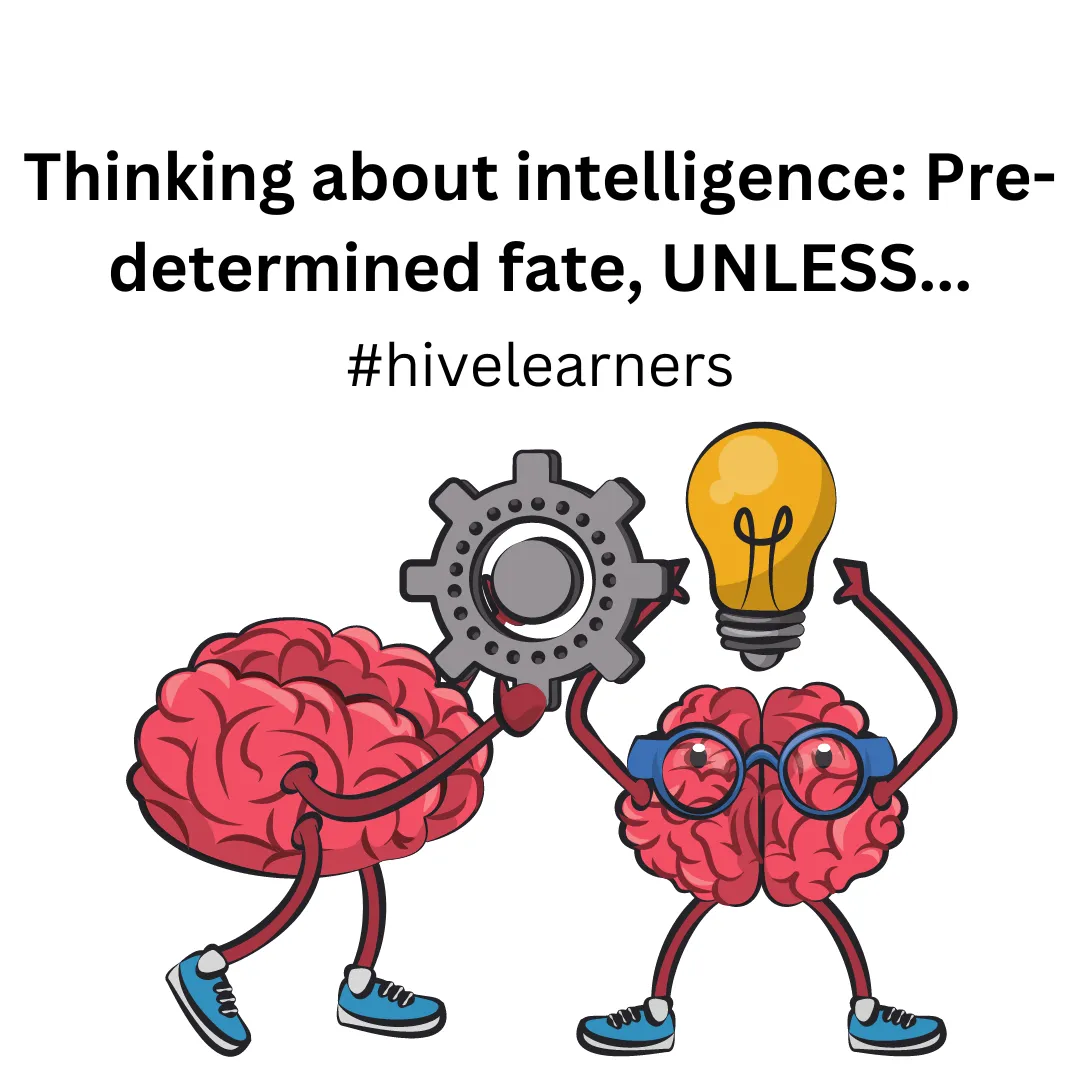
Cover created using free elements in CANVA.
INTELLIGENCE - Hive Learners Prompt:
“Is going to school and getting good grades a measure of intelligence? What are your thoughts on this? Do we all need to go to school to be intelligent? Or is there something else that needs to be done? Share your thoughts with us.”
A big ‘Howdy’ to the Hive Learners community; this is my first post in the group and I need to be honest from the get-go and say that I’m not sure how this post will turn out. By way of introduction, this is an area that I’m rather interested in – I work as a High School English teacher and I have only ever worked in schools with low socio economic backgrounds. In part, this is because I hate the idea of living in a big city – preferring instead the country life.
In Australia (specifically I’m talking now about New South Wales) when a student finishes Year 12 they get a ranking, basically – the closer you are to 100, the higher your rank, with 99.95 being the top mark given out. In the first school I worked at, the highest marks were around 40. But the kids were lovely and they tried hard – they wanted to do well, and school was their refuge, but it just didn’t click for them. This wasn’t about their intelligence, but it was about their backgrounds. Many students were in family’s where there was generational unemployment, high levels of illiteracy and a complete absence of money. School was where they sent their kids because there was nothing else to do. I guess this is in contrast to big cities where there are transport networks and shopping centres you could spend a lot of time at.
At the school I’m currently working at, we have a larger student population and there is a fair bit more infrastructure in the area. It’s a rather interesting setting, as there is a real blend of wealth and an absence of wealth. But, as a teacher at the front of the classroom – what’s more visible is a school uniform. What then, determines success? Last year we had a student achieve a 99.5 ranking, and previously had a student achieve First in the State in Extension English. But – we also have students who don’t achieve success. Looking between both sites, my observation is that kids are kids. There was no distinguishable difference between one cohort or the other – and, some of the most intelligent young people I’ve come across are getting some of the lowest ranking. Beyond the young person, however – it seems to be the attitudes and values that come from their home life that determine success, often with education being either encouraged or discouraged at a young age. Intelligence then seems to me to be innate, but academic success is something that is a product of whole life.
To get at the question then, ‘What else needs to be done?’ I feel the answer isn’t easy – and, if a parent can’t read or write and cannot value these skills, it is hardly their fault that this is passed on to the children, or indeed, that they can’t teach their children to read. In Australia in those early years, often graded readers are sent home and parents need to listen to their children read. The more books you get through in Kindergarten and Year 1 sets you up.
Would you believe then, that studies have been done which connect a Kindergarten student’s reading ability to their final score at the end of their secondary education in Year 12. Here’s the crux of it: as a young person, your academic outcome is set by the time you’re 5 or 6 – UNLESS interventions are put in place to change the course of your education. With this in mind, what of intelligence? It becomes secondary to environmental factors in your upbringing.
Although, you’ll notice, I was deliberate in capitalising, ‘UNLESS’ – the point is though, the ‘UNLESS’ has to happen. That intervention can come from anywhere, but it does suggest that our futures are not fixed in a predetermined state; only that they’re predetermined IF nothing changes.